2022: The Year in Review
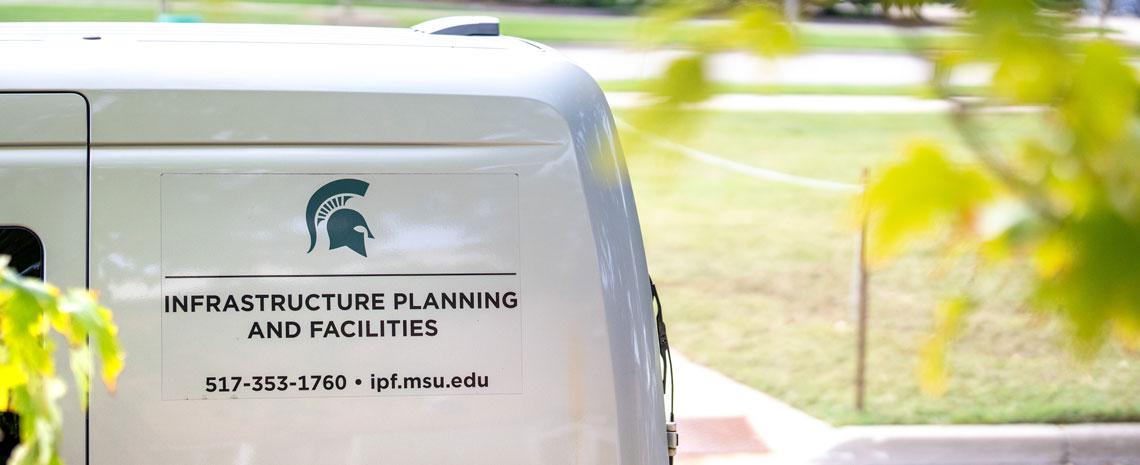
Danielle Fowler
December 15, 2022
Infrastructure Planning and Facilities (IPF) plans, builds, maintains and beautifies MSU’s physical campus environment and directs the university’s long-term infrastructure planning goals. With a university the size of a small city, our focus is supporting MSU’s infrastructure needs while being responsible stewards of MSU’s resources and minimizing our environmental impact.
Here are just a few of the highlights from IPF’s work in 2022.
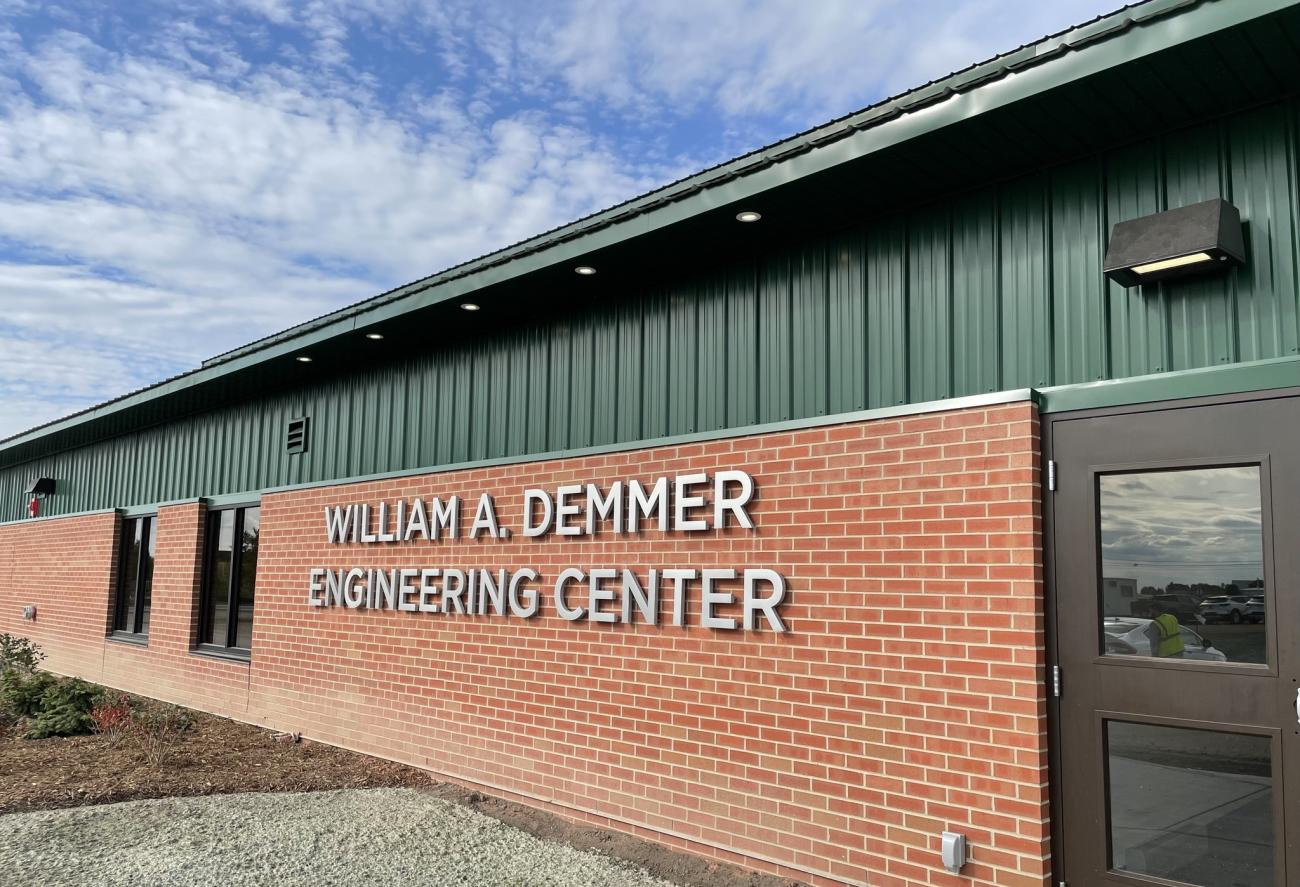
BUILDING NEW SPACES
As the needs of students at MSU evolve, infrastructure should evolve along with them. These are a few of the projects that we completed in 2022.
- William A. Demmer Engineering Activities Center. The new 10,000 square-foot Demmer Engineering Activities Center provides an on-campus facility for the use of registered student organizations in the College of Engineering. The facility includes a machine shop, computer numerical control, dynamometer space, and a ventilated chamber for composite materials work.
- Spartan Greens Turf Fields. These new artificial turf fields, opened for use in September, provide Spartans with seven acres of new space for sports and recreation that can be used even in inclement weather. The new complex also includes locker rooms, restrooms and storage for recreational sports gear.
- Demmer Shooting Sports and Education Center grand reopening. The Demmer Center, located on the southern end of campus, has officially reopened as a premier archery shooting facility. The Demmer Center offers shooting sports training for youth and adults with indoor and outdoor ranges, and a new TechnoHunt archery simulator.
- STEM Teaching and Learning facility earns numerous awards for innovative design and construction. The STEM Teaching and Learning Facility has received nine total awards for innovative design and construction, including top honors from the Associated General Contractors of America which described the building as “the most significant construction project of 2021.”
- African American and African Studies Department. This project renovated approximately 8,400 square feet on the second floor of North Kedzie Hall to house the African American and African Studies department. The construction consisted of renovation of twenty rooms including new ceilings, lighting, flooring, HVAC and electrical. The renovated space features offices, a lounge, a dance studio, recording booth, and student learning and study spaces.
- Hidden Lake Gardens Canopy Walk. Hidden Lake Gardens, a 755-acre nature preserve in Tipton, MI, now features a new suspension bridge called the Canopy Walk which gives visitors a novel, immersive way to experience Michigan’s natural beauty.
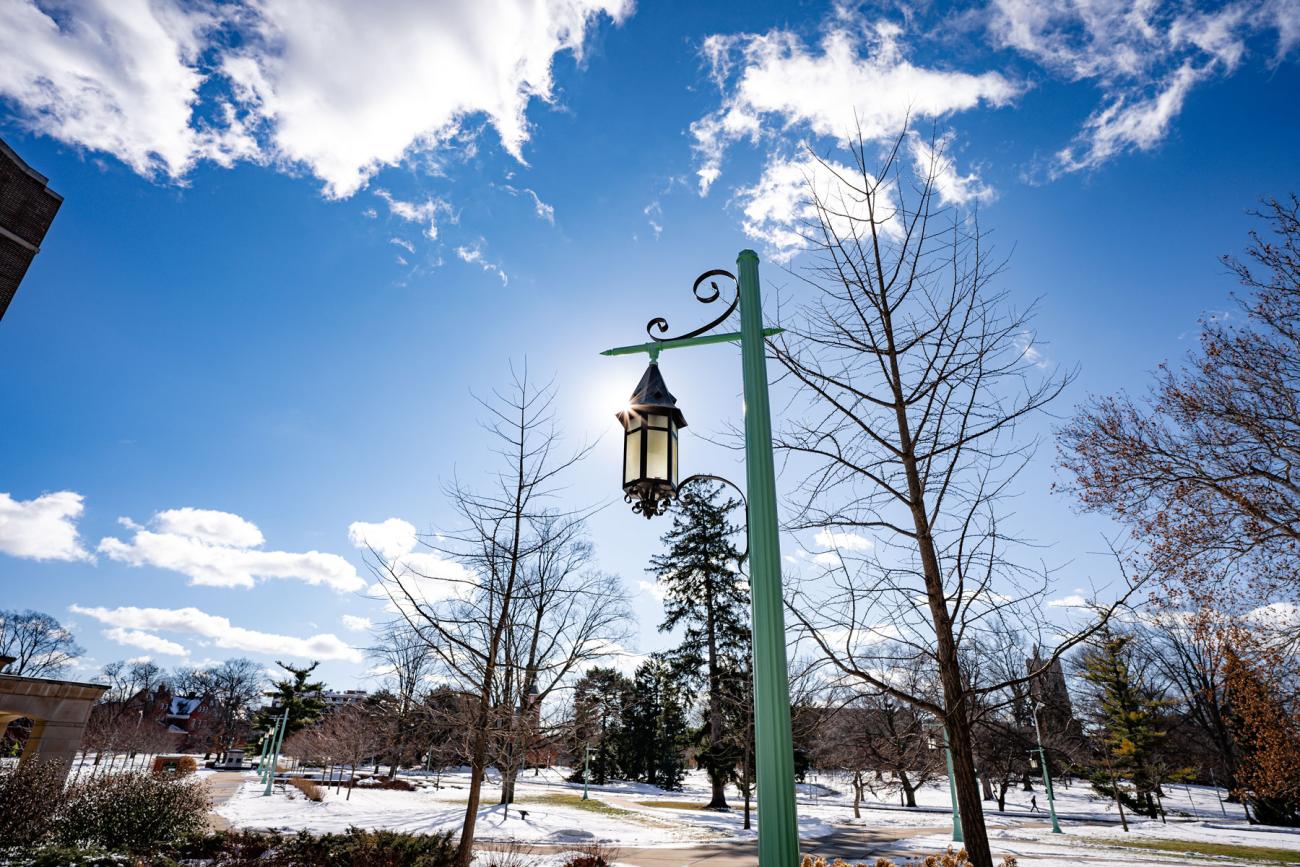
BEING SPARTAN GREEN
One of IPF’s major goals is to maximize the impact and usability of our campus while minimizing our environmental footprint.
- Exterior lighting upgrade. In coordination with the MSU Department of Police and Public Safety, IPF completed thousands of exterior lighting upgrades on campus, including: 1,420 concourse fixtures replaced with LEDs, 264 roadway fixtures replaced with LEDs, 247 lanterns replaced with LEDs, and 1,019 new roadway fixtures. Not only are they more efficient, the upgrades will also increase safety for students on campus.
- Electric vehicles added to the university fleet. In the first phase of electrifying MSU’s vehicle fleet, 40 new EVs have been added along with upgraded campus charging infrastructure. IPF has also added electric vehicles to the facilities fleet including 18 Ford E-transit service vehicles. MSU plans to convert 369 internal combustion engine vehicles to fully electric vehicles over the next decade.
- Gold rating from the Association for the Advancement of Sustainability in Higher Education (AASHE). MSU received its second gold rating for sustainability achievements. AASHE’s Sustainability Tracking and Rating System, or STARS, is used by more than 900 public and private universities in 40 countries and is the most widely recognized framework in the world for publicly reporting comprehensive information related to a college or university’s sustainability efforts. Participants report achievements in four overall areas: academics, engagement, operations, and planning and administration.
- Inaugural spring vermicompost sale. The Surplus Store and Recycling Center (SSRC) held their first spring vermicompost sale. Vermicompost is nutrient rich soil created from food scraps generated at MSU dining facilities. “Vermicomposting is win-win,” said John Biernbaum, a professor in the MSU Horticulture Department. “It not only allows us to ‘close the food cycle loop’ by returning minerals and organic matter in food residue to farms and gardens, maintaining healthy soils, it also keeps tons of food scraps out of landfills.”
- Reciprocating Internal Combustion Engine (R.I.C.E.) in full operation. The R.I.C.E. technology installed at the T.B. Simon Power Plant is more responsive, offers additional flexibility, and operates at higher efficiency than the traditional generation units currently in use. The R.I.C.E. units will produce electricity directly from the combustion of natural gas without requiring the co-production of steam and will allow the plant to respond more flexibly to campus demands for steam and electricity.
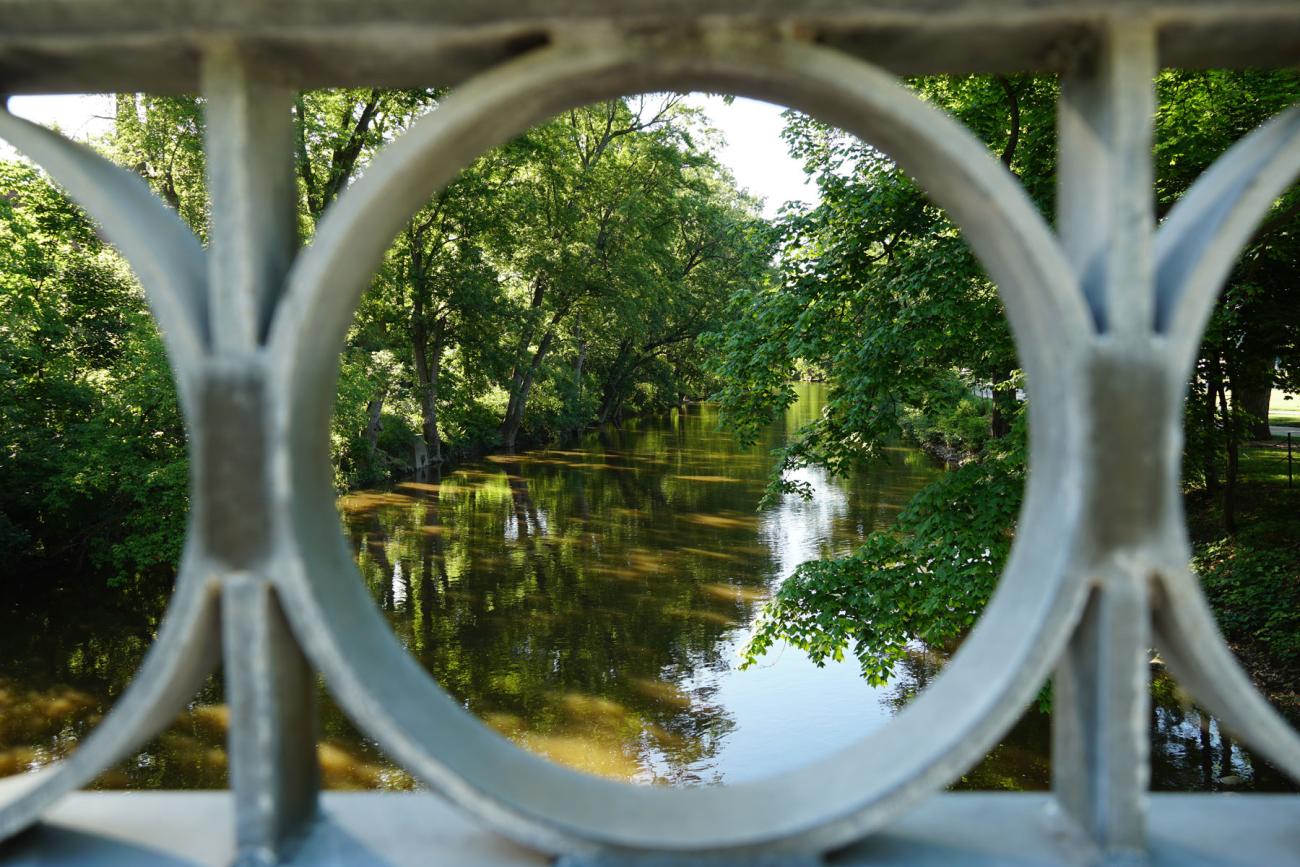
CAMPUS & COMMUNITY PARTNERSHIPS
IPF partners with MSU departments, community organizations and our peers in the Big 10 Academic Alliance to provide hands-on experience to students and share knowledge and innovations in the field of facilities management.
- Midwest Landscape Architects and Grounds Managers Conference. Landscape Services hosted the annual Midwest Landscape Architects and Grounds Managers conference with over 100 attendees from B1GTen Universities. The conference included multiple on-campus tours, presentations by sponsors and sharing design and maintenance lessons learned.
- Spartan Upcycle. The Surplus Store and Recycling Center (SSRC) partnered with Student Life and Engagement and Residential College in the Arts and Humanities on a Spartan Upcycle workshop for students and faculty, including partnering with the Spartan Sierra Club on a post-basketball game collection of recyclables left in Spartan Stadium’s seating.
- Women in the Skilled Trades. IPF’s Leisa Williams-Swedberg instructed six Women in the Skilled Trades (WIST) apprenticeship training sessions focused on blueprint reading, architectural and engineering scaling and dimensioning, and model building.
- Providing Power to the Ingham County Sheriff’s Office Complex. The High Voltage Maintenance crew assisted the Ingham County Sheriff’s Department by providing portable power generation to sustain operations at the new Ingham County Sheriff’s Complex after a storm caused a power outage. With our largest portable generator, Big Moe, the IPF crew reestablished power on the site within two hours of receiving the call.
- “Digger Days” and 4H programs. Landscape Services sponsored MSU Horticulture Gardens’ “Digger Days” event. Multiple pieces of large equipment, accompanied by operators, were brought in so kids could check out the tools we use to keep MSU running.
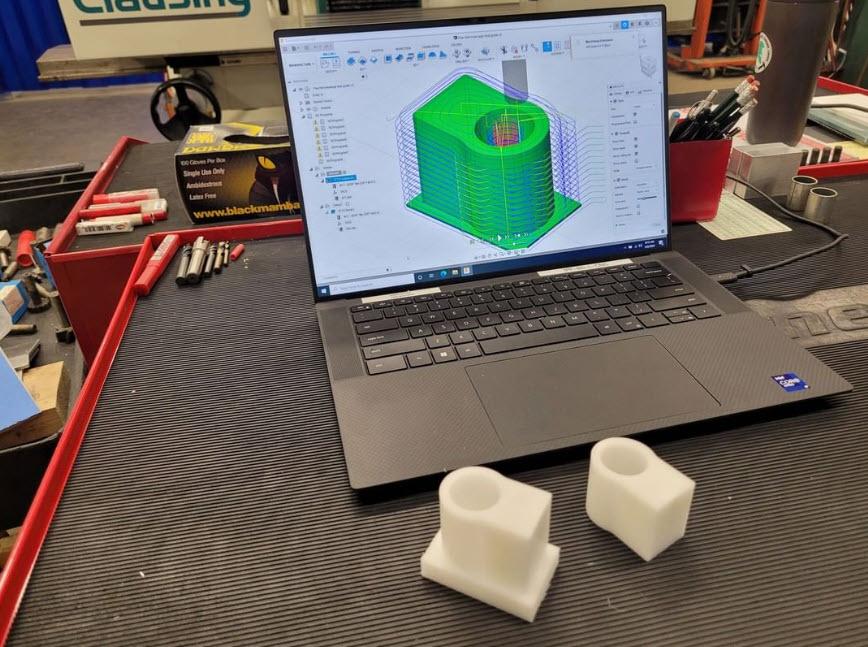
TECHNOLOGY & INNOVATION
IPF is always looking for improvements and innovations in technology to make our processes more efficient. Here’s some of the new technology we implemented in 2022.
- ArcGIS Indoors. IPF is responsible for managing 24.7 million square feet spread across more than 550 MSU buildings. To help staff easily find their work order locations, a new application was introduced to IPF mobile devices that provides turn by turn navigation. The ArcGIS Indoors app guides staff to the closest university vehicle parking space, entrances, and then directly to the item needing service. The app can also be used to track university assets and integrates with IPF’s work order system.
- Tormach computer numerical control (CNC) machine. With this new CNC machine, the time and cost to manufacture parts has been drastically reduced, increasing efficiency and reducing waste.
LOOKING TO THE FUTURE
A major initiative in 2022 that IPF staff participated in was the Facilities and Land Use Plan project. This plan will provide a flexible framework for the future of the East Lansing campus and statewide MSU facilities. Guided by the University Strategic Plan, this process provides an opportunity to advance equity, bolster community health, and enhance support systems for students, faculty, staff, alumni, and visitors through the physical environment of MSU's land and facilities. The project team conducted 79 listening sessions with over 625 participants including students, faculty, staff, alumni, neighbors, and the broader MSU community. The team also created an interactive map where Spartans could submit their feedback on how they personally use campus spaces. You can view the team’s initial findings on campusplan.msu.edu.
